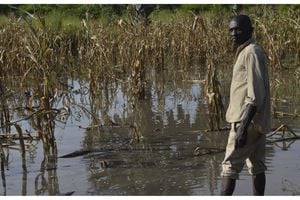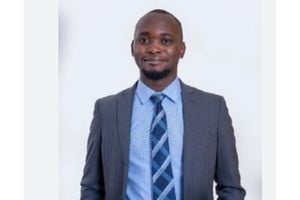
Godwin Toko. Photo/Courtesy
Kill the kingmaker is an old political phrase. The phrase encourages those who rise to positions of prominence to decisively deal with those who help them rise to such positions by undermining, outmanoeuvring or killing them. This way, the kingmaker will not make another person king, hence the new king can lead with security of tenure. In the recent past, some African presidents have taken the phrase seriously.
After several postponements, the government of President Joseph Kabila finally organised an election in the Democratic Republic of Congo (DRC) that would see power move on from the Kabila family in December 2018. Most observers expected a two-horse race pitting opposition candidate Martin Fayulu against the then-ruling party's Emmanuel Ramazan.
In the end, another opposition candidate, Felix Tshisekedi, was announced winner. Describing it as "an electoral coup", Fayulu claimed the state had rigged the election and Tshisekedi was supposed to hold position three, not one. Many observers agreed.
With just 46 seats in the national assembly, Tshisekedi's coalition entered another coalition agreement with Kabila's Front Commun pour le Congo that had 350 MPs. Within months, it became evident that the two leaders had fallen out, with accusations and counter-accusations and publicly shared letters calling for intervention from SADC and the African Union. The fallout continued with the kingmaker seeking refuge in South Africa where he got back to university and earned a master’s degree at the University of Johannesburg, and recently defended his PhD thesis.
Meanwhile, President Tshisekedi was elected to a second term in December 2023. However, the rest is not history. At least not yet. In August this year, a military court in the country sentenced 26 people, including key allies of Kabila, accused of involvement with armed groups, to death in absentia. Ironically, among those sentenced to death in absentia is Corneille Naanga, the former head of DRC's electoral commission – the same man who declared Tshisekedi winner of the 2019 election! While kingmaker Kabila wasn't sentenced, Tshisekedi has since accused him of preparing an insurrection and belonging to a rebel group – an offence punishable by death.
Months before the political drama in the DRC started, another African president, Botswana's Ian Khama, had reached the end of his political track. Khama and his Botswana Democratic Party (BDP) picked his vice president, Mokgweetsi Masisi as successor. Masisi won the election, however, within months, the two had disagreed on several issues, including wildlife conservation, and leadership style. Like Kabila, Khama sought refuge in South Africa for years. With elections on the horizon, the former president returned to Botswana in September and helped the opposition Umbrella for Democratic Change and third-time contestant, Duma Boko win comfortably with the ruling party claiming only four seats out of 69!Boko's win makes Khama a kingmaker – again – so we have to wait and see how it plays out; the jury is out for now.
However, the two nations show us that one is better off being a kingmaker in Botswana, a nation hailed for its adherence to democracy and the rule of law. No matter what the new king may have against the person who helped them reach the apex of power, they can only stretch their luck until the next election and there is every possibility the voters – not a military court – can have the final say.As for the DRC where Tshisekedi is serving a second term, plans are now in high gear to amend the constitution to increase the presidential term to seven years and also do away with term limits. Sadly, the DRC is not an outlier on our side of the word – Botswana is. Perhaps, seeing what manipulating systems to give the crown to the wrong king can do, our leaders should work to have systems that hold the king accountable in place – while they are still kings.
The writer is a lawyer with a keen interest in human rights [email protected]







